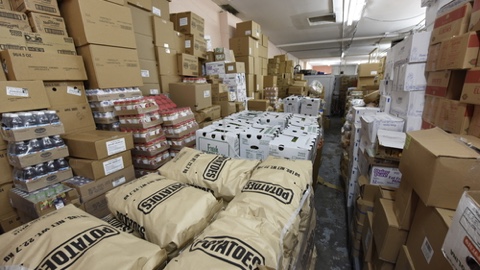
A recent study from the CUNY Graduate School of Public Health & Health Policy (CUNY SPH) in a sample of 50 food pantries in the Bronx borough of New York City examined five factors:
- food item availability;
- accessibility of the pantry by clients;
- accommodation of food preferences and restrictions;
- affordability; and,
- the acceptability of the quality of the food offered.
“We aimed to take a nuanced look at access to food pantries, which is a potentially important source of nutrition for those who are food insecure,” said Dr. Andrew Maroko, a professor of environmental, occupational, and geospatial health sciences at CUNY SPH.
Food insecurity means at least one member of the household has limited access to adequate food due to lack of money or other resources. For those who are food insecure, food pantries can be a vital resource for accessing food and meeting basic nutritional requirements.
Analysis of the data revealed that the pantries were not reliably open, thus limiting accessibility to them. Only about half of the pantries were open during the hours listed in an online directory and several had had prolonged or indefinite closures. The data also showed that even when pantries were open, all five access factors showed deficiencies such as limited inventory, few hours during which the pantry was accessible, food handouts were pre-selected without consideration of preferences, opportunity costs, and items being offered were of inferior-quality. The third finding was that open pantries frequently had insufficient food supply to meet client demand.
The study concluded that pantry food was an unreliable resource for those who were food insecure. Maroko and the investigators note that future research should explore the reasons behind mismatched food supply and demand at pantries to create more predictable, reliable, and adequate food provision.
The findings from the study were published in the Journal of Community Health.


